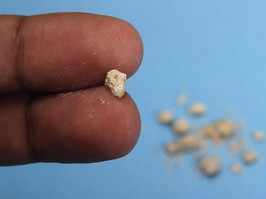hotter temperatures linked to more kidney disease
renal diseases were declared a global health issue in 2017 by the lancet, which estimated 2.6 million deaths were caused by poor kidney function.
utis, kidney disease, cancer: what your pee says about you
from yellow to brown to, yes, blue, the colour of your urine offers important clues about your health.
new test may predict kidney disease and failure
certain proteins in the urine of patients with acute kidney injury could predict more serious issues down the line.
 5 minute read
5 minute read










